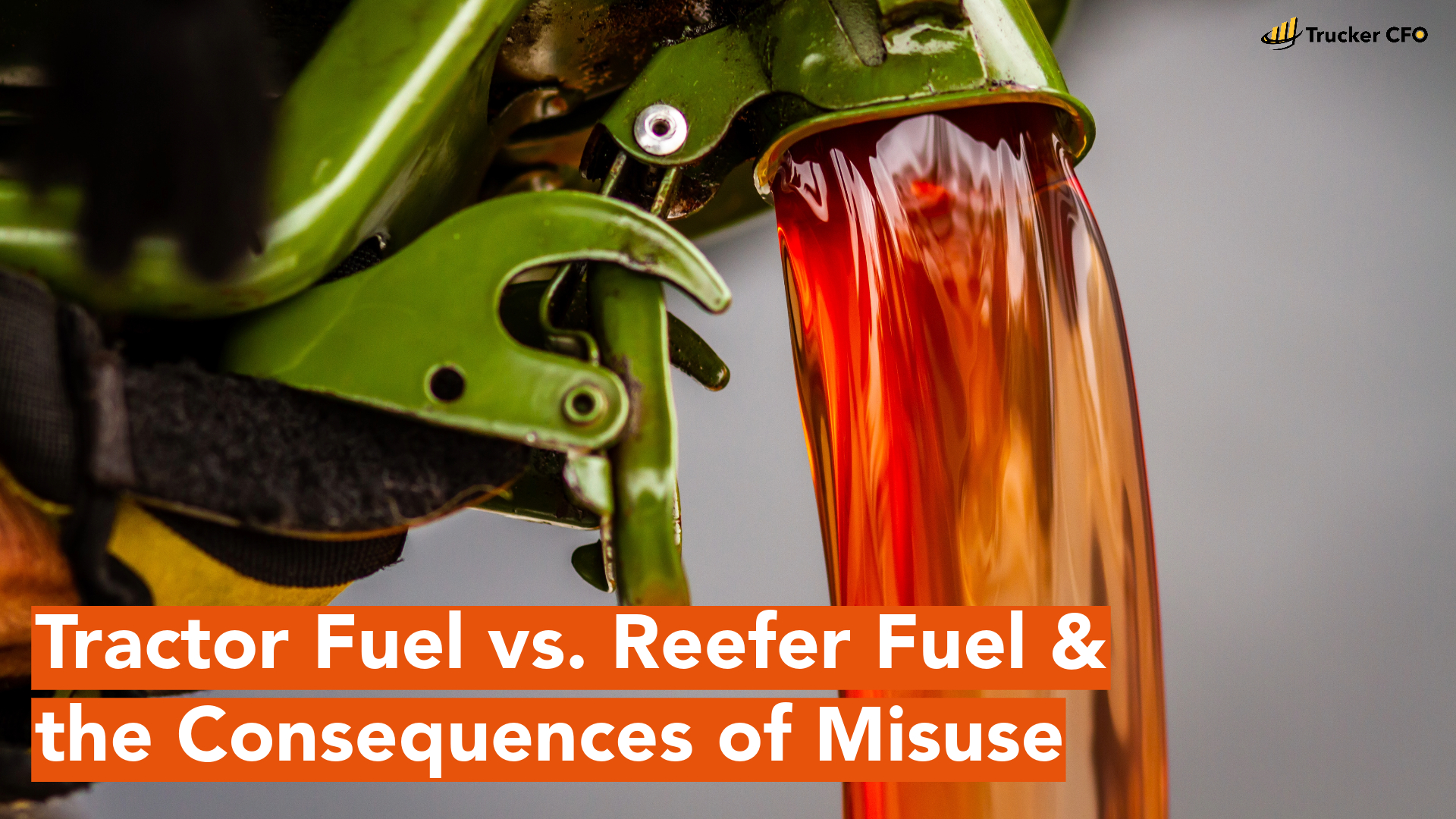
In the logistics and transportation industry, understanding the types of fuel used for different purposes is critical. Tractor fuel vs. reefer fuel, while both diesel, serve distinct functions and are not interchangeable. Using the incorrect type can have serious implications, especially if reefer fuel is used in an on-highway vehicle. Here’s what you need to know.
What is Tractor Fuel?
Tractor fuel, commonly referred to as on-road diesel or clear diesel, is the standard fuel used for most on-highway vehicles, including trucks. It is dyed clear to indicate that it is legal for use on the road and is subject to federal and state road taxes. Tractor fuel meets stringent environmental standards set by the EPA to minimize pollution.
What is Reefer Fuel?
Reefer fuel, on the other hand, is red-dyed diesel. It is used for powering refrigeration units on trailers that transport perishable goods. The red dye indicates that the fuel is not for on-highway use and is therefore not taxed in the same way as tractor fuel. Reefer fuel contains a higher sulfur content, which is not compliant with the EPA’s on-highway vehicle standards.
The Severe Consequences of Misuse
Using reefer fuel in an on-highway vehicle can lead to significant consequences:
Legal and Financial Penalties
Using reefer fuel in a road-going truck is a form of tax evasion. Detected through fuel inspections, violators can face hefty fines and legal action.
Engine Damage
Modern on-highway engines are designed to run on low-sulfur diesel. Reefer fuel’s high sulfur content can damage these engines, leading to costly repairs and downtime.
Environmental Harm
The higher sulfur content in reefer fuel results in more pollutants being released into the atmosphere, contributing to environmental damage and public health risks.
Voided Warranties
Using reefer fuel in on-highway vehicles can void engine warranties. Manufacturers will not cover damages caused by improper fuel use.
Increased Maintenance Costs
Engines running on high-sulfur fuel require more frequent maintenance. Components like fuel injectors and filters are more likely to clog, leading to increased operational costs.
Best Practices
To avoid the severe consequences of using the wrong type of fuel, it is essential to:
- Educate Drivers: Make sure drivers are aware of the differences between tractor fuel vs. reefer fuel.
- Fuel Management: Implement strict fueling procedures to prevent cross-contamination.
- Regular Inspections: Conduct regular inspections of fuel tanks and receipts to ensure compliance.
- Maintenance Records: Keep detailed records of maintenance to track and prevent potential issues from improper fuel use.
The distinction between tractor fuel and reefer fuel is significant and not merely a matter of color or cost. Using reefer fuel in an on-highway vehicle not only violates tax regulations but can also lead to severe engine damage and environmental pollution. By adhering to the correct fuel usage, transportation companies can avoid legal troubles, protect their vehicles, and contribute to a cleaner environment.
Remember, this blog is for informational purposes only and it’s always best to consult with a professional for industry-specific advice.
